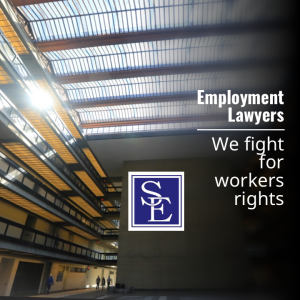A recent gubernatorial task force has released a report addressing a major problem that many employees are facing across the state of New Jersey. According to the Report of Governor Murphy’s Task Force on Employee Misclassification, 12,315 employees were improperly classified as independent contractors, rather than employees, in 2018. This misclassification can cause major issues for workers by limiting their access to essential legal protections provided to New Jersey employees. There has been a growing trend of misclassification, with the number of employees misclassified as independent contractors increasing by 40% over the past decade. Unfortunately, this trend continues to create problems for workers across the State to this day, which is why Governor Murphy’s task force was so greatly needed.
Generally, in order to determine whether a worker is properly classified as an employee or an independent contractor for wage payment law and wage and hour law purposes, New Jersey courts utilize what is known as the ‘ABC Test.’ The ABC Test starts off with a presumption that a worker is an employee. An employer can rebut this presumption only if they can establish the existence of each of the following three factors:
- The worker is free from control or direction in the performance of their services, both under the contract and in fact;
- The worker performs work that is outside of the employer’s usual course of business; and
- The worker is customarily engaged in an independently established trade, occupation, or profession, which is of the same nature as the work performed for the employer.
An individual can be classified as an independent contractor only if all three prongs are successfully established.
Employers often misclassify their employees as independent contractors in order to limit their legal and monetary obligations to their workers, despite those employees clearly not falling within the ABC Test. One common method employers use to accomplish this is requiring employees to form an entity, such as a limited liability corporation, prior to commencing their employment. By “contracting” with that entity, the employer creates the appearance that the employee is an independent contractor. Employers may also pay their workers “off the books,” without formal payroll, in order to avoid paying taxes or providing legal protections to their employees. This behavior occurs most often in low-wage employment situations such as manual labor, janitorial services, home care, transportation, trucking, and delivery services. Legal employment protections carry incredible importance to these occupations.
In 2018, Governor Murphy issued Executive Order No. 25 (“https://nj.gov/infobank/eo/056murphy/pdf/EO-25.pdf”) establishing a task force charged with investigating this misclassification problem and its effects. As part of the investigation, the task force held meetings and public forums to discuss the issues surrounding and impacts of misclassification. The report that the Governor’s task force compiled revealed that employee misclassification has had a devastating impact on the employment environment in New Jersey. Specifically, misclassification has led to a loss of tens of millions of dollars every year in unpaid state income taxes and contributions to unemployment and disability benefits funds. According to the report, misclassification results in the underreporting of about $462 million in wages and the loss of $13.9 million in contributions to unemployment, disability, and family leave funds every year.
Additionally, employee misclassification has restrained misclassified employees’ access to overtime compensation, sick leave, workers’ compensation, unemployment benefits, family and medical leave, and protection under anti-discrimination laws. This has had devastating impacts on the lives of misclassified employees who suffer from injuries, disabilities, layoffs, discriminatory treatment, and more. They complete the same tasks and requirements as bona fide employees but retain none of the protections or benefits.
As part of the effort to address this widespread issue, the task force signed memos of cooperation with the Department of Labor, conducted interagency trainings on identifying misclassification in regulated industries, and sent letters to scores of accountants with the goal of educating them on the issue of misclassification. Following their research, the task force recommended that the state conduct targeted education and public outreach regarding misclassification, interagency coordinated enforcement of employment laws, the sharing of data between enforcement agencies, and the strengthening of state contracting by requiring that all contractors confirm that they are aware of the legal standard for proper classification of workers.
The task force further advocates for legislation that: (1) requires public posting of notices regarding misclassification; (2) grants the Department of Labor the ability to issue stop-work orders and to access tax information; (3) imposes liability on employers, business owners, and successor entities that misclassify their employees; (4) requires companies that misclassify their employees to fund attorneys’ fees and investigatory costs; and (5) increases penalties for violators.
New Jersey has demonstrated a commitment to putting a stop to this unlawful and harmful behavior. As Governor Murphy stated, “We are either going to bring you into compliance or we are going to put you out of business.”
If you feel that you have been misclassified as an independent contractor and thus have not been provided with essential employment protections, be sure to contact an experienced employment attorney who can provide you advice and counsel concerning your employment attorney.
 New Jersey Employment Lawyers Blog
New Jersey Employment Lawyers Blog


